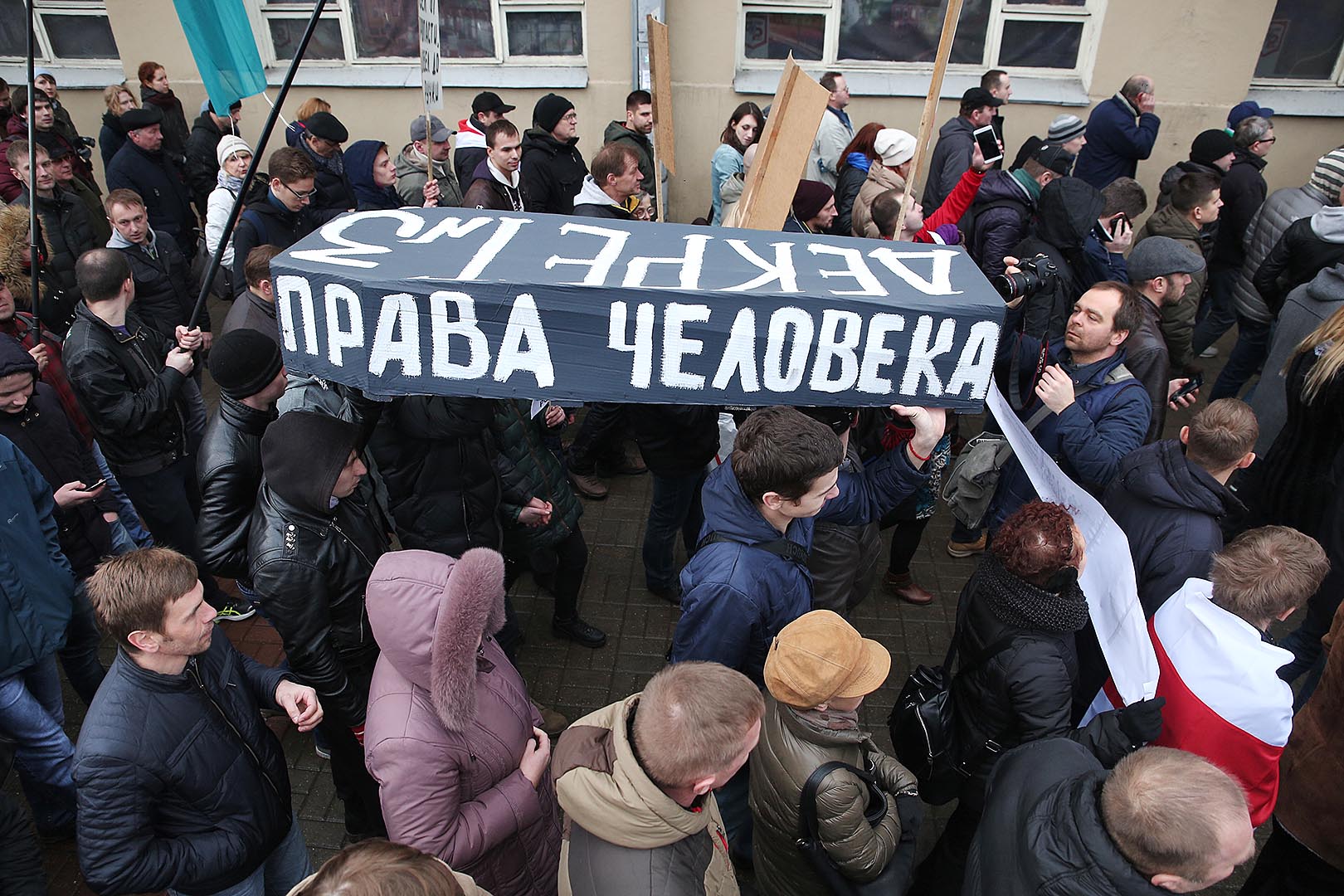Belarusian authorities gradually step up penalties for street protest participants
 The situation has not changed
The situation has not changed

The Belarusian authorities seem determined to use force in the case street protests continue and become politicised. In addition, the Belarusian leadership has mobilised the state apparatus, ideologists and state employees to be used as a “soft power” to ease tension in the regions. In relations with European capitals, Minsk aims to impose its interpretation of growth in public discontent with socio-economic policy and toughening of response by the security forces due to the Russian factor mainstreaming in street protests.
Last week, street protests against decree No 3 on ‘social dependants’ were held in Minsk, Grodno and Mogilev.
The Belarusian authorities have proportionally and demonstratively stepped-up repressions against opposition activists, informal youth movements and protesters in the regions. The law enforcement has applied pointed detentions, administrative arrests and imposed fines on opposition activists. The authorities have meaningfully enhanced pressure on protesters in the regions, including preventive talks, threats of dismissal and home visits to the unemployed. Apparently, the Belarusian authorities have achieved some success in reducing growth in protest activity, albeit the total number of protesters across the country has not decreased.
The Belarusian authorities have failed in localising the protest activity in the capital, which is probably why they have sanctioned a protest march on March 15th in Minsk. As before, numerous unauthorized protests took place in Grodno and Mogilev, but without the visible participation of opposition leaders. Most likely, the Belarusian leadership anticipates a more low-profile socio-economic agenda in Minsk due to higher well-being and employment as compared with the regions. In addition, in order to curtail the street activity, the authorities have used force when detaining the most active participants among anarchists in the authorised rally in Minsk on March 15th.
The Belarusian leadership is attempting to disorient the opposition and defocus the political agenda by updating the threats to Belarus’ territorial integrity from the Kremlin among the national democrats. In addition, Minsk anticipates a softer response from Western capitals to tougher repressions due to the exaggerated Russian factor in protests and force provocations. The Belarusian authorities are likely to count on a wide response among Europeans to alleged Russian interference with the US and the EU elections. Nevertheless, despite some attempts during the first protests in the Belarusian regions, pro-Kremlin provocations did not gain momentum and were rejected by the protesters.
Overall, the authorities are attempting to prompt their format and agenda in a direct dialogue with society, excluding opposition leaders from negotiations and depoliticising demands of those discontent with the state policy.
Subscribe to our newsletter




Situation in Belarus
Constitutional referendum: main consequences


 Video
Video
How to count the political prisoners: are the new criteria needed?


 Video
Video
Paternalism In Decline, Belarusian Euroscepticism, And The Influence Of Russia


 Video
Video











